Digital marketing has transformed from a simple promotional tactic into a dynamic and indispensable part of today’s business world. As more than 77% of companies prioritize online strategies, the scope of digital marketing continues to reshape how businesses connect with their audiences. Its influence extends far beyond clicks and likes, revolutionizing industries, creating career opportunities, and driving innovation.
This guide explores the full extent of the scope of digital marketing, offering insights into its key strategies, real-world applications, emerging trends, niche applications, and advanced tools. Whether you’re a business owner aiming to grow your brand or a professional looking to advance your career, understanding the scope of digital marketing can open doors to unparalleled opportunities.
The Digital Revolution

The transition from traditional to digital marketing has redefined the way businesses engage with their target audiences. Unlike conventional marketing, which relies heavily on television, print, or radio, digital marketing leverages the internet, social media, and other online platforms to create more personalized and measurable interactions.
The scope of digital marketing extends to various aspects, such as:
Personalized Marketing:
Messages that are customized according to user preferences and actions are known as personalized marketing.
Real-Time Interactions:
Immediate communication with customers via social media and live chat.
Data-Driven Insights: Advanced analytics to track campaign performance and optimize strategies.
Growing Demand and Opportunities
The growing reliance on digital channels has fueled the demand for skilled digital marketers. According to industry reports, the global digital advertising market is projected to surpass $500 billion by 2027. This surge is driven by:
Shifting Consumer Behavior:
Modern consumers increasingly use online platforms for shopping, research, and communication.
Technological Advancements:
Tools like Artificial Intelligence (AI) and machine learning enhance the efficiency and effectiveness of digital campaigns.
Global Connectivity:
With over 5 billion internet users worldwide, businesses have access to an unprecedented audience base.
The scope of digital marketing allows businesses to reach local and global audiences, adapt to market trends, and achieve measurable results.
Key Channels and Strategies in Digital Marketing
To fully understand the scope of digital marketing, it’s important to explore its core channels and strategies:
1. Search Engine Optimization [SEO]
Optimizing websites to appear higher on search engine results pages (SERPs) is known as SEO. By targeting relevant keywords and improving site structure, businesses can attract organic traffic and enhance their online presence.

2. Social Media Marketing
Social media sites like Facebook, Instagram, and LinkedIn are excellent resources for increasing audience engagement, brand recognition, and revenue. Social media campaigns often combine organic posts with paid advertising to maximize reach.
3. Email Marketing
One of the most economical tactics in the realm of digital marketing is still email marketing. Personalized email campaigns help nurture customer relationships and drive conversions.
4. Pay-Per-Click Advertising (PPC)
Because PPC only requires payment when a user clicks on the ad, businesses can run ads on search engines and other platforms. This approach is perfect for producing leads and traffic right away.
5. Content Marketing
Creating valuable content—such as blogs, videos, and ebooks—helps businesses educate their audience, establish authority, and build trust.
Each of these strategies plays a vital role in shaping a comprehensive digital marketing approach.
Real-World Applications of Digital Marketing
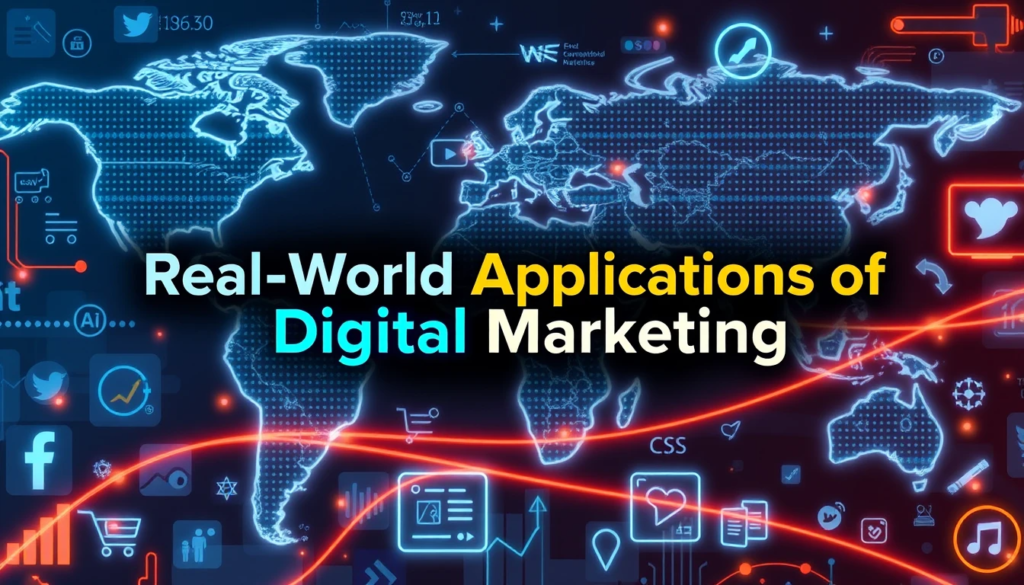
The scope of digital marketing is evident in how leading companies leverage it to achieve their goals. Here are some notable examples:
1. E-Commerce Platforms
E-commerce giants like Amazon and eBay have built their success on robust digital marketing strategies, including SEO, PPC, and personalized recommendations.
2. Social Media Campaigns
Brands like Nike and Coca-Cola use innovative social media campaigns to engage audiences, build loyalty, and drive conversions.
3. Content-Driven Marketing
HubSpot exemplifies content marketing by providing valuable resources such as blogs, webinars, and templates to attract and retain customers.
Why the Scope of Digital Marketing is Expanding
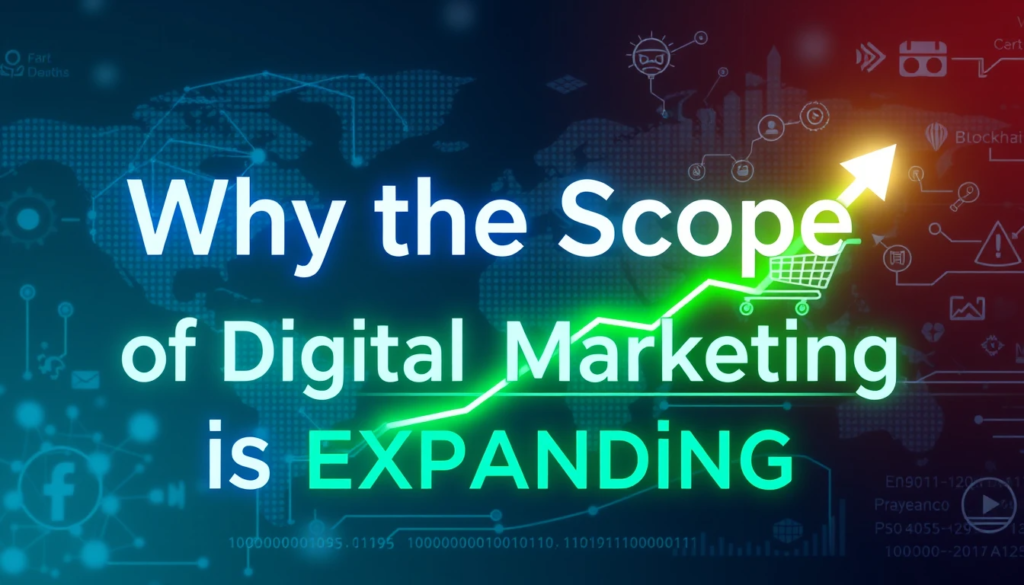
There are a number of reasons why the breadth of digital marketing is expanding so quickly.
1. Global Digital Transformation
The transition to digital platforms was expedited by the COVID-19 epidemic. Businesses, including traditional brick-and-mortar stores, are now investing heavily in their online presence.
2. Rising Internet Penetration
With affordable data plans and improved connectivity, more people are accessing the internet, increasing the potential reach of digital marketing campaigns.
3. Advanced Technologies
Emerging technologies like AI, Augmented Reality (AR), and blockchain are pushing the boundaries of what digital marketing can achieve.
4. Changing Consumer Behavior
Consumers now spend significant time online, using search engines, social media, and e-commerce platforms to make informed decisions. To remain competitive, businesses need to adjust to these changes.
Emerging Trends in Digital Marketing (2024 and Beyond)
1. Artificial Intelligence (AI)
AI is becoming integral to digital marketing, automating tasks, analyzing data, and providing advanced insights. Examples of AI in action include chatbots, personalized recommendations, and predictive analytics.
2. Video Marketing
Short-form videos on platforms like TikTok, YouTube, and Instagram Reels dominate attention spans and drive engagement.
3. Augmented Reality (AR) and Virtual Reality (VR)
Immersive technologies like AR and VR offer unique ways to engage customers, from virtual try-ons to interactive experiences.
4. Omni-Channel Marketing
Omni-channel strategies ensure consistent and seamless customer experiences across all touchpoints, including websites, social media, and physical stores.
5. Interactive Content
Quizzes, polls, and games encourage deeper audience engagement and help collect valuable user data.
The scope of digital marketing is broad, with applications across various sectors:
1. Healthcare
Telemedicine Promotion:
Digital ads and email campaigns highlight online consultation services.
Patient Education:
SEO-optimized blogs provide valuable health information.
2. Retail and E-Commerce
Personalized Recommendations: AI tools suggest products based on user behavior.
Social Commerce: Platforms like Instagram enable direct purchases.
3. Education
Webinars and Online Events: Universities use digital marketing to attract and engage students, showcasing the broad scope of digital marketing.
Content Marketing: Informative blogs and videos demonstrate educational opportunities within the scope of digital marketing
4. Finance
Digital Banking Services: Financial institutions use targeted campaigns to promote online banking.
Content Marketing: Blogs and videos educate customers about financial products and services.
5. Travel and Hospitality
Dynamic Ads: Platforms like Google Ads highlight special offers and seasonal discounts.
Social Media Engagement: Hotels and airlines use Instagram and Facebook to inspire travel enthusiasts.
explore also: Top 10 Digital Marketing Jobs in High Demand-the ultimate guide
Case Studies: Successful Digital Marketing Campaigns
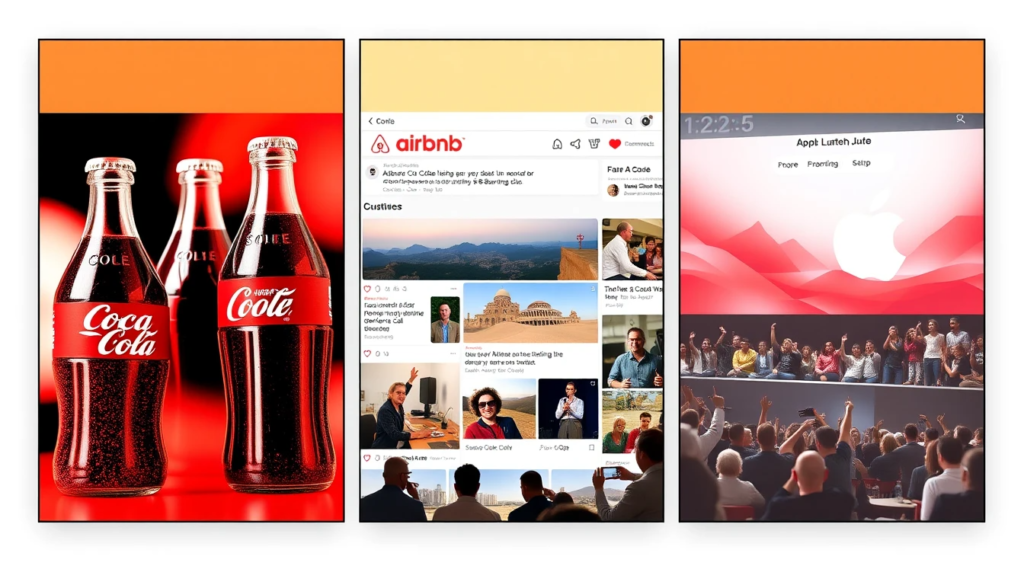
1. Coca-Cola’s “Share a Coke” Campaign
This social media-driven campaign personalized bottles with names, encouraging customers to share their experiences online. Sales and engagement both significantly increased as a result.
2. Airbnb’s Storytelling Approach
Airbnb showcases places and experiences through user-generated content that tells genuine tales. This strategy builds trust and fosters community engagement.
3. Apple’s Product Launch Strategies
Apple leverages teaser campaigns, social media buzz, and live-streamed events to create anticipation and excitement around new product launches.
Measuring the Impact of Digital Marketing
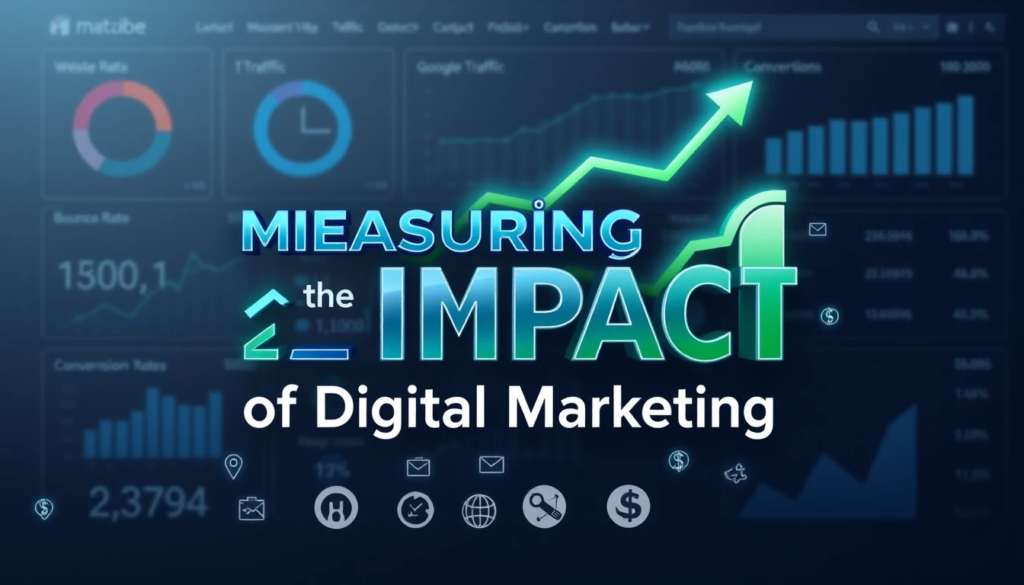
Digital marketing’s capacity to be measured is one of its main benefits. Tools such as SEMrush, HubSpot, and Google Analytics offer comprehensive insights into:
Here’s a detailed breakdown of each section in measuring the impact of digital marketing:
1. Website Traffic
Website traffic refers to the number of visitors who visit your website, along with information about their behavior once they’re there. Understanding website traffic helps you evaluate how effectively your marketing efforts are attracting visitors. In this category, some crucial metrics to monitor are:
Total Visitors:
This includes both new and returning visitors to the website. It’s important to track the growth or decrease in traffic over time to gauge the success of your marketing efforts.
Traffic Sources:
It can be quite important to know where your visitors are coming from. Sources may include organic search, paid search, social media, email campaigns, referral websites, etc. This allows you to assess which channels are performing the best and allocate your resources effectively.
Bounce Rate:
A website’s “bounce rate” is the percentage of visitors that depart after seeing just one page. A high bounce rate may indicate that landing pages are not engaging enough or that visitors are not finding what they were looking for.
Average Session Duration:
This measures how long visitors stay on your website. Longer sessions usually indicate that users find the content engaging or valuable.
Pages per Session:
Indicates how many pages users view during a specific session. Higher numbers suggest that the website content is attractive and encourages deeper exploration.
2. Conversion Rates
Conversion rates are one of the most crucial metrics in digital marketing. In relation to the overall number of visits, this is the proportion of visitors who finish a desired action (a conversion). Conversions could be anything that fits with business goals, such as downloading an ebook, making a purchase, or subscribing to a newsletter.
Some key aspects of conversion rates include:
Lead Generation:
For businesses that focus on lead generation, a conversion could be defined as a visitor filling out a contact form or signing up for a demo.
Sales:
For e-commerce businesses, conversions often mean making a sale. The ratio of visitors who finish a purchase to the total number of visits is known as the conversion rate for e-commerce websites.
Call-to-Action (CTA) Performance:
Conversion rates help assess the effectiveness of your CTAs. Are visitors clicking on them? Are they following through with the desired actions after clicking?
Micro and Macro Conversions:
Micro-conversions include small actions like watching a video or clicking on a product, while macro-conversions are more significant, like completing a purchase. Analyzing both types gives a complete view of user behavior.
3. Return on Investment (ROI)
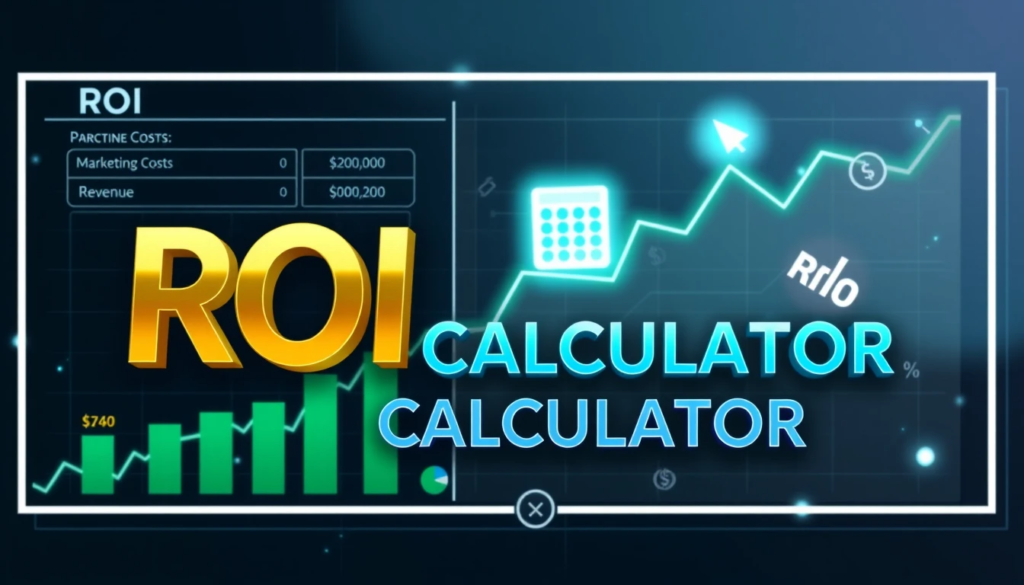
ROI in digital marketing is the key metric for evaluating the financial performance of a campaign. It measures the effectiveness of your marketing spend and how much revenue you generate in return for every dollar invested. The formula to calculate ROI is:
ROI=Revenue−Marketing CostsMarketing Costs×100ROI = \frac{{\text{{Revenue}} – \text{{Marketing Costs}}}}{{\text{{Marketing Costs}}}} \times 100
Some important things to consider when evaluating ROI:
Revenue Generated:
The total amount of money made as a result of the campaign is known as the revenue generated. For e-commerce businesses, the sales are made directly from digital marketing efforts. For service businesses, it could be calculated based on leads generated that result in future sales.
Marketing Costs: This includes all the expenses associated with the campaign, such as paid ads (Google Ads, Facebook ads), content creation, influencer marketing, SEO services, etc.
Customer Lifetime Value (CLV):
To get a more accurate ROI figure, you should also consider the CLV, which estimates the total revenue a customer will generate over the course of their relationship with your business. A higher CLV might mean it’s worth investing more in acquiring customers.
Attribution Models:
When measuring ROI, attribution plays a big role in determining which touchpoints are contributing to the conversions. A correct attribution model helps in identifying which channels are truly driving sales or leads, allowing you to allocate your budget more effectively.
Tools like Google Analytics, HubSpot, and SEMrush provide the data necessary to measure all of the above metrics, enabling marketers to make informed decisions and optimize their campaigns for better results. By monitoring and analyzing these key performance indicators, digital marketers can evaluate their strategies and adjust them to improve performance, drive conversions, and maximize ROI.
Interactive Tools for Engagement
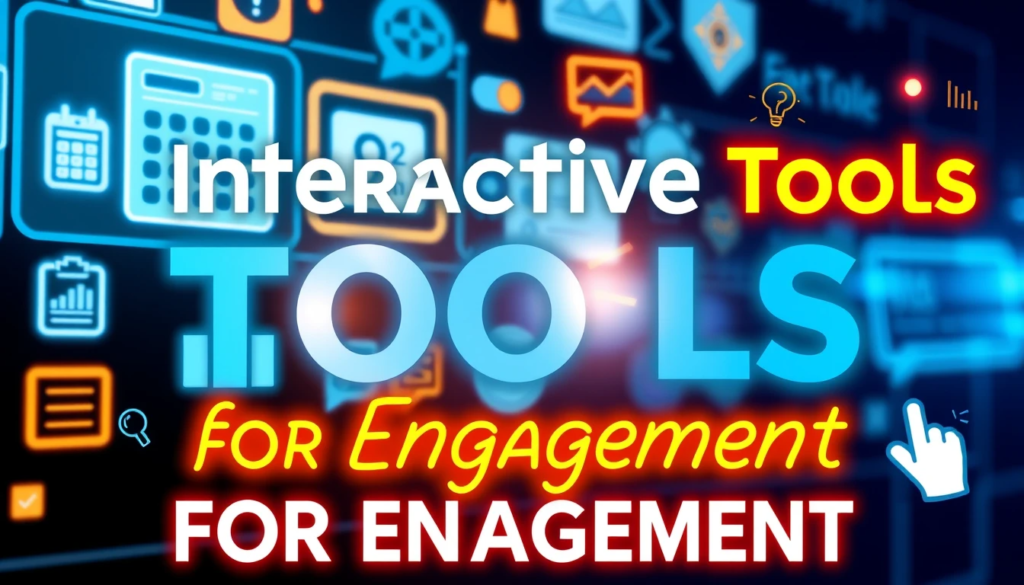
Here’s an in-depth explanation of the Interactive Tools for Engagement, including the ROI Calculator and Career Quiz, and their role in engaging users while measuring the impact of digital marketing:
1. ROI Calculator
An ROI (Return on Investment) Calculator is a tool that allows businesses to evaluate the financial effectiveness of their digital marketing campaigns. The calculator takes various inputs (such as revenue, marketing costs, etc.) and calculates how much profit or loss the business made in relation to the investment they made in their marketing activities. The purpose is to provide clear insights into whether a campaign is worth the investment and where improvements can be made.
Key Features of an ROI Calculator:
Revenue Input:
Businesses input the revenue generated directly or indirectly through their digital marketing campaigns. This could include sales revenue, leads generated, or any other measurable financial result.
Marketing Costs Input:
This is the total cost of the marketing campaigns, including advertising spend (Google Ads, Facebook Ads), content creation costs, influencer fees, SEO services, email marketing tools, etc.
Calculation Formula:
ROI=Revenue−Marketing CostsMarketing Costs×100\text{{ROI}} = \frac{{\text{{Revenue}} – \text{{Marketing Costs}}}}{{\text{{Marketing Costs}}}} \times 100
This formula helps determine the percentage return on investment, showing how much profit was made for every dollar spent.
Benefits of Using an ROI Calculator:
Performance Evaluation:
The calculator helps businesses track the success of digital campaigns. If ROI is positive, it shows that the campaign is financially viable, whereas a negative ROI indicates that the campaign needs adjustments.
Informed Decision Making:
By using the ROI calculator, businesses can understand where they’re getting the best returns, allowing them to shift resources and focus on the most profitable campaigns.
Optimizing Budget Allocation:
ROI calculators enable marketers to identify which channels (SEO, paid ads, social media, etc.) are generating the best results, helping to optimize marketing budgets and make more efficient investments.
Example Use Case:
For example, if a business spent $5,000 on a paid advertising campaign and generated $20,000 in sales, the ROI calculator would show an ROI of 300%. This would indicate that the campaign generated a significant return compared to its cost.
2. Career Quiz

A Career Quiz is an interactive tool designed to help individuals assess their knowledge and interests in the field of digital marketing. It is especially useful for individuals who are exploring potential careers in digital marketing or businesses looking to train their staff.
Key Sections of the Career Quiz:
Self-Assessment of Digital Marketing Knowledge:
“How well do you understand the scope of digital marketing?” is an example question. This question might be designed to assess the respondent’s familiarity with the scope of digital marketing, including concepts such as SEO, paid advertising, social media marketing, email marketing, etc. It can help gauge whether the individual is a beginner, intermediate, or advanced in digital marketing. Follow-up questions could include multiple-choice questions to rate knowledge on specific topics like “What does SEO stand for?” or “What is Google Ads’ main purpose?”
Exploring Areas of Interest:
Example Question: “Where are you most interested in the digital marketing spectrum?is a sample query.
Key Features of the Career Quiz:
Interactive & Engaging:
By using a quiz format, users can engage with the content interactively, providing immediate feedback and guidance. It becomes a fun way to assess one’s knowledge and preferences while learning more about the field of digital marketing.
Personalized Feedback:
“How well do you understand the scope of digital marketing?” is an example question. This question might be designed to assess the respondent’s familiarity with the scope of digital marketing, including concepts such as SEO, paid advertising, social media marketing, email marketing, etc. It can help gauge whether the individual is a beginner, intermediate, or advanced in digital marketing. After completing the quiz, users can receive a personalized result, such as:
- A suggestion to explore specific career paths (e.g., content marketing, PPC advertising, etc.).
- Recommendations for learning resources (e.g., online courses, blogs, certifications).
- Insights into where they stand compared to industry standards or areas they need to improve to be more effective in digital marketing.
Follow-up questions could include multiple-choice questions to rate knowledge on specific topics like “What does SEO stand for?” or “What is Google Ads’ main purpose?”
Career Path Guidance:
Based on the answers, the quiz can suggest potential career paths within digital marketing. For example:
A person with an interest in data analytics might be steered toward a career in data-driven marketing or SEO.
Someone who enjoys creativity might be directed towards a career in content marketing or social media management.
Those with a passion for business strategy and ROI analysis could be encouraged to consider digital marketing management or PPC advertising.
Benefits of Career Quizzes:
Self-Discovery:
Users can get a better understanding of their strengths and weaknesses, which is critical when deciding where to focus their time and energy in digital marketing.
Career Development:
For beginners or those seeking a career shift, the quiz provides a clearer roadmap to help identify areas to explore further and start building relevant skills.
Targeted Learning Pathways:
Based on the quiz results, individuals can be recommended specific digital marketing certifications, online courses, or resources that align with their interests and skill levels.
Example Use Case:
A person taking the quiz might be asked to select between topics like SEO, Social Media Marketing, and Email Marketing. Based on their answers, the quiz might suggest exploring SEO in-depth and recommend resources like Moz Academy or Google’s SEO Starter Guide.
Overall Impact:
Both the ROI Calculator and Career Quiz enhance user engagement and provide valuable insights. The ROI Calculator helps businesses evaluate the success of their digital marketing efforts and make data-driven decisions, while the Career Quiz enables individuals to assess their digital marketing knowledge and interests, guiding them on their career journey. By using these tools, businesses and individuals alike can optimize their digital marketing strategies and grow their expertise in a structured, interactive manner.
Final Thoughts
The scope of digital marketing is ever-expanding, offering limitless opportunities for businesses and professionals. By staying updated on trends, leveraging innovative tools, and focusing on customer-centric strategies, you can unlock the full potential of this dynamic field.
Whether you’re a brand aiming to scale or an individual looking to grow your career, embracing the scope of digital marketing will give you a competitive edge in 2024 and beyond.

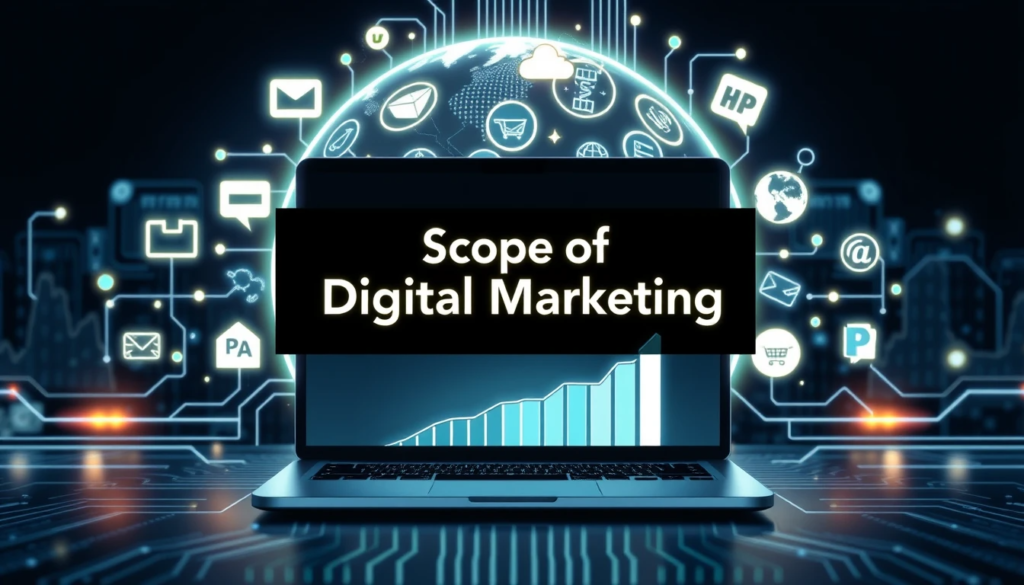
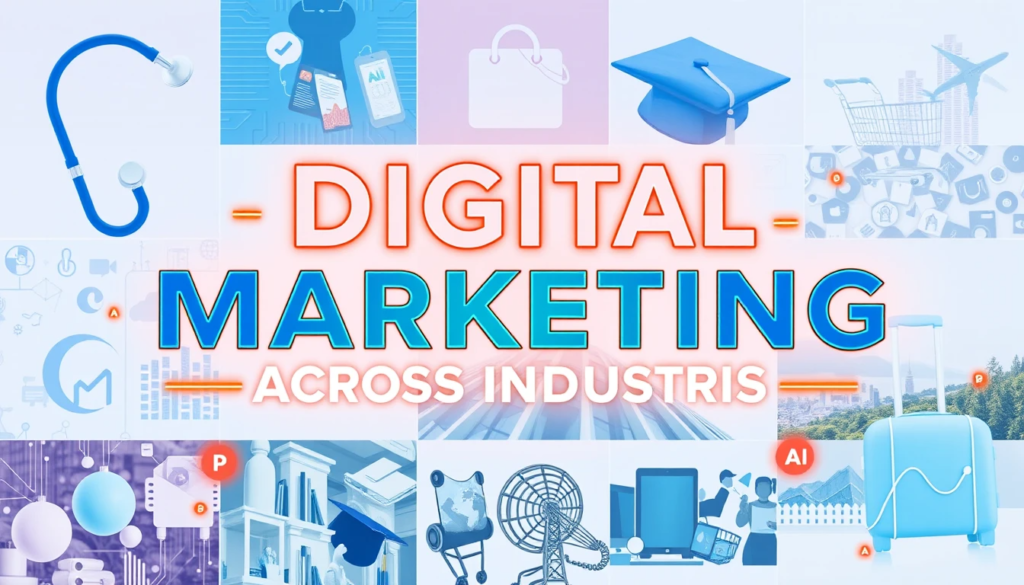
Pingback: 15 Ways a Digital Marketing Agency Boosts Startup Success
Pingback: Transform Your SEO Game in 2025 with Proven Strategies!
Solid analysis of game strategy is key, and platforms like jboss are evolving quickly to meet player demands. Seamless integration & easy access-like the jl boss app-are huge for a good experience. Definitely a growing space!